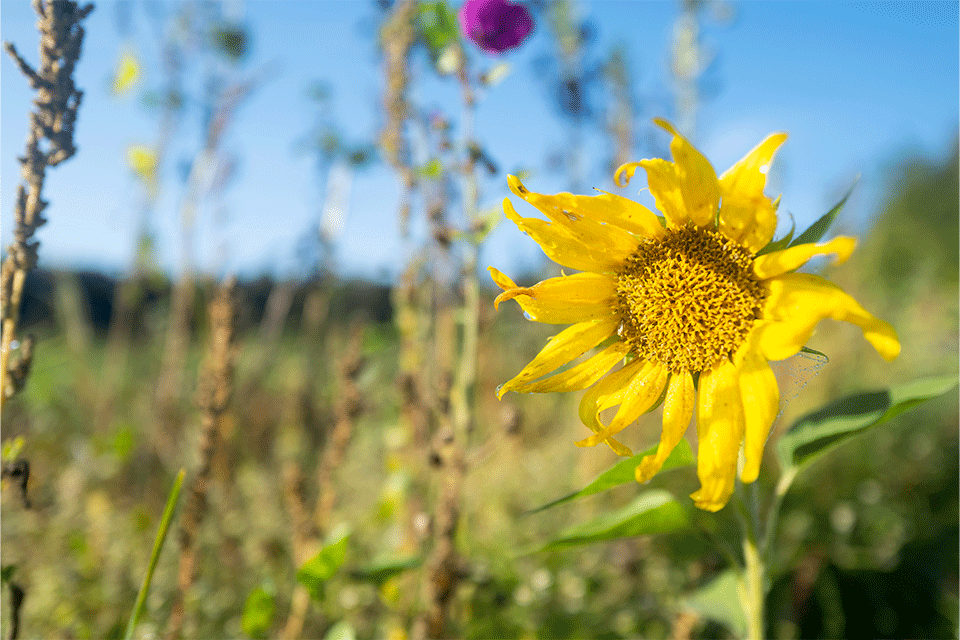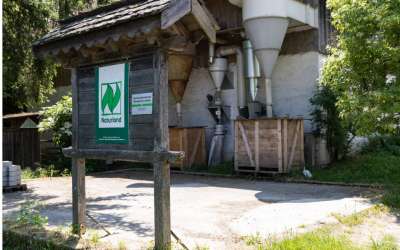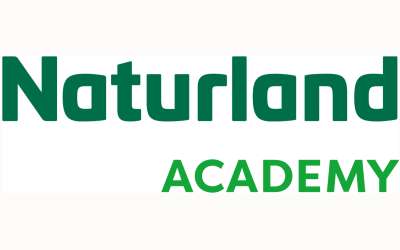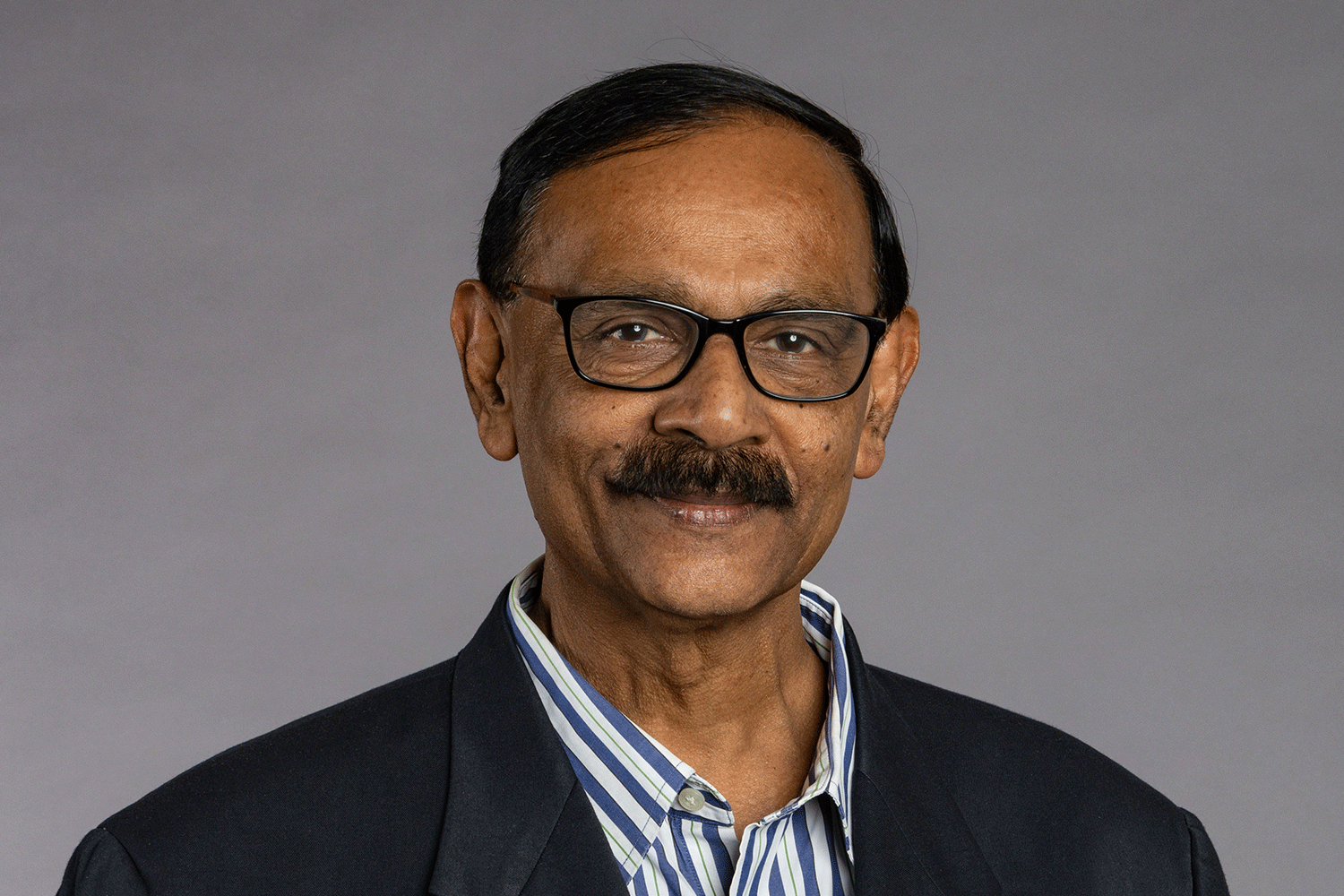More Organic with Naturland
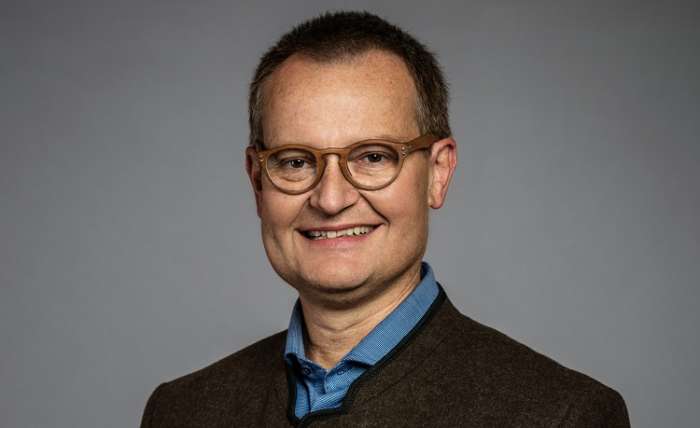
News
Very dynamic development in 2022 – Strong growth rates in Europe
In 2022 Naturland once again made an above-average contribution to the expansion of organic agriculture in Germany. Nationwide almost 22,000 hectares of fields and meadows were converted to organic farming in accordance with Naturland standards last year, an increase of 7.6 percent. Overall, the organic area in Germany increased by 3.7 percent in the same period.
All over Germany a total of 194 farms newly joined Naturland (plus 4.3 percent). This means that 4,671 Naturland farms in Germany now cultivate an area of almost 310,000 hectares organically according to Naturland standards. In addition, there are 53,000 hectares of organically managed forest.
Heigl: Strengthening growth through additional stimulus
"Organic continues to grow, despite the economic crisis. At the moment, consumers are going more often to discount stores than to specialized organic retailers, but they are still buying organic products there. Furthermore, all the retail chains are continuing to expand their organic product ranges. This should be an incentive for politicians to focus even more firmly on their 30% organic target right now and to provide new impetus to strengthen organic growth", commented Naturland-President Hubert Heigl on the development
According to Heigl, one such impetus would be clear targets for expanding organic in public communal catering. "We need at least 50 percent organic in daycare centers, schools and public sector canteens to instigate a serious demand," the Naturland-President demanded. In parallel, he said, Federal Agriculture Minister Cem Özdemir must finally get the promised image campaign for organic off the ground. "30 percent organic by 2030 is still possible, but we also have to do something about it," the Naturland-President emphasized.
Largest organic association with 600,000 hectares in 62 countries
Outside Germany, Naturland's development varied greatly from region to region, but was very dynamic overall. For example, the organic association was able to extend its international commitment to six more countries. Thus, for the first time there are Naturland member farms in Azerbaijan, Burundi, Denmark, Estonia, Iran and Serbia.
A total of 125,000 organic farmers in 62 countries around the world now work according to Naturland standards. They cultivate a total area of almost 600,000 hectares (plus 1.9 percent). Naturland was thus able to consolidate not only its position as the largest international organic association, but also its role as an association of small-scale farmers. The number of cooperatives and producer associations in Naturland rose from 159 to 174.
Strong development in Europe
Significant increases were recorded above all in Europe, with an increase of a good 25 percent in area, largely caused by strong growth in Austria. But even excluding Austria, Naturland's area in Europe increased by a good 13 percent. There was growth in area in Romania and the Netherlands, for example, but also in the Ukraine, where there are three Naturland member farms. The increases were particularly marked in Spain, where the number of Naturland farms rose by 25 percent and the area even by 40 percent. The reason for this was the continuing increase in demand from Germany for organic fruit and vegetables in Naturland quality.
Strengthening organic & regional production worldwide
Demand in the German market also played a major role in determining developments in Africa, Latin America and Asia, which varied greatly from country to country. In India, for example, nine farms were converted to Naturland because demand for organic rice in Germany is currently high. In Uganda, on the other hand, a recently converted cooperative of sesame producers had to withdraw many of its more than ten thousand smallholders from certification for the time being because the expected demand had failed to materialize.
"The example of Uganda highlights a problem of which we at Naturland have been aware for some time: On the one hand, access to European markets is important for the development of organic agriculture in the global south, but too much dependence on exports can also hamper this development," says Naturland's managing director Steffen Reese. As a consequence, Naturland has begun to realign its international strategy in the sense of a greater regionalization.
For example, Naturland is now also implementing projects to inform consumers about organic in countries such as Vietnam or the Philippines. "Organic production and regional origin in food consumption belong together not only in our country, but everywhere in the world. Last but not least, it is also a question of food sovereignty that smallholder farmers in Africa or Asia also find a market for their organic products in their home countries," Reese emphasizes.




